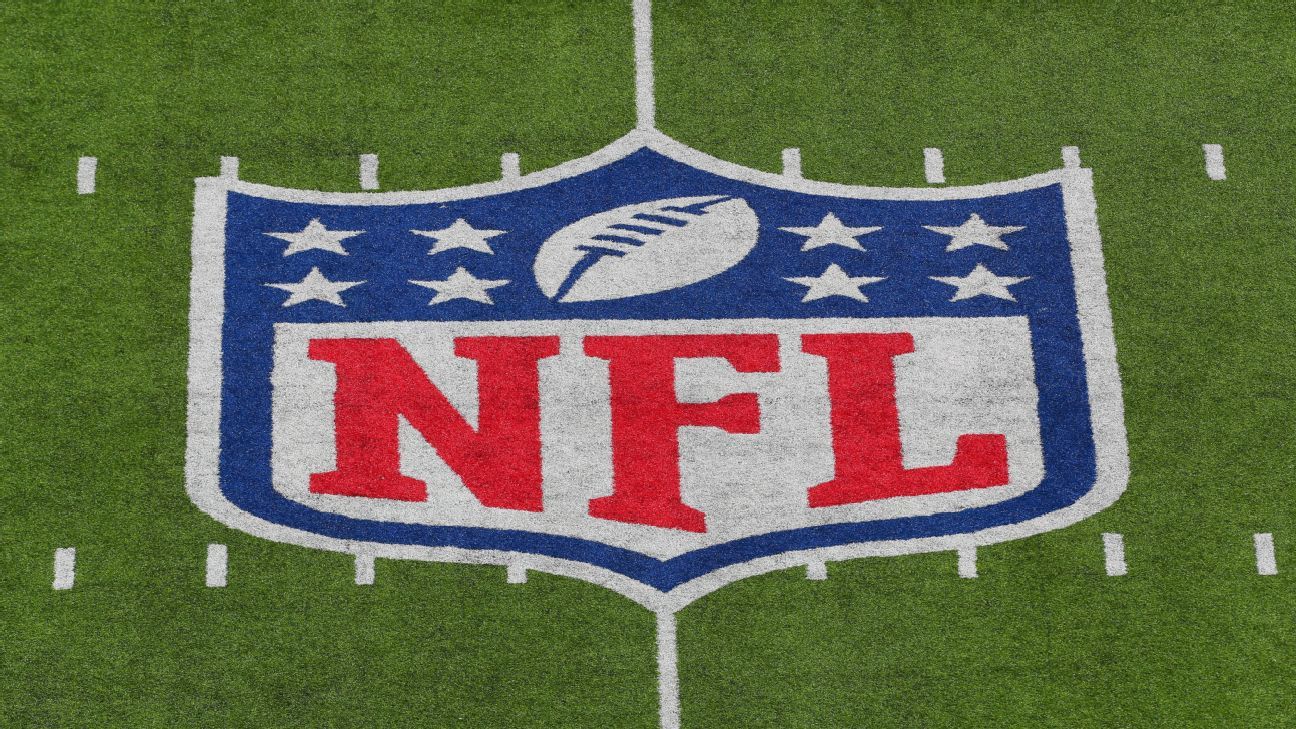
NFL owners approved the expansion of the regular season to 17 games Tuesday, a long-expected decision that will generate additional revenue for the country's richest sports league.
Players agreed to the additional game as part of their 2020 collective bargaining agreement, which gave the league an option to expand as soon as the 2021 season. The preseason will be reduced from four games to three to maintain compliance with the collective bargaining agreement, which limits the total number of preseason and regular-season games played to 20.
There will remain one bye week per team. The season will begin on Thursday night, Sept. 9 and will end on Jan. 9, 2022. The Pro Bowl will be played on Feb. 6, 2022 at Allegiant Stadium in Las Vegas, and the Super Bowl LVI at SoFi Stadium in Los Angeles has been pushed back one week, from Feb. 6 to Feb. 13, 2022.
Speaking shortly after owners concluded the first day of a two-day virtual meeting, NFL commissioner Roger Goodell said the decision to expand was a "monumental moment in NFL history." He also cited league data that had traced the highest rate of player injuries to preseason games. (Many of those who play extensively in preseason games are backups, and other players unlikely to make the team.)
"What we are actually doing is following the data and following the science to make sure that we are doing things [well] both from a health and safety standpoint as well as seeking to get better in every way," he said.
The formula for scheduling a season with an odd number of games will consist of two parts. First, AFC and NFC teams will alternate annually between eight and nine home games. The AFC will have nine in 2021. The extra game will be a cross-conference matchup based on the previous year's divisional standings and the division schedule rotation from two seasons prior.
The full 2021 schedule will be released later this spring.
The NFL said that the enhanced season will guarantee that, starting in 2022, each team will play an international game at least once every eight seasons. Up to four neutral-site games will be scheduled with the initial focus on Canada, Europe, Mexico, South America and the United Kingdom. The league said interested teams can also volunteer to play home games internationally as they currently can do. Chris Halpin, the NFL's executive vice president and chief strategy & growth officer, said that Germany is among the countries that could host a game in the coming years.
Although the NFL Players Association agreed to the change last year, some players have spoken out on social media in recent weeks to express their displeasure with their additional game. On Sunday, New Orleans Saints running back Alvin Kamara tweeted it was "dumb ... as hell" and Green Bay Packers safety Adrian Amos tweeted: "We really let this happen."
Player salaries won't change, but they will be paid over 18 weeks rather than 17. Some player benefits will be altered, however.
The owners' decision to activate the 17-game option will trigger changes to offseason and in-season workouts, according to NFLPA assistant executive director of external affairs George Atallah. Among them is a reduction in the maximum amount of time players can be required to spend at a team facility during the season. The NFLPA has been advocating since December to make last year's virtual offseason permanent as a way to reduce wear and tear on their bodies.
The league is currently working on a plan for this year's offseason program, which will be affected in at least some way by the ongoing COVID-19 pandemic. In a Tuesday memo obtained by ESPN, the league informed teams that OTAs for all teams will begin April 19. (In previous years, teams with new head coaches were allowed to begin two weeks earlier than others.)
OTAs remain voluntary for all players, per the collective bargaining agreement; COVID-19 testing protocols established last year will remain in place; and workout bonuses in player contracts must be paid as specified in those contracts. The league and the NFLPA expect to continue, over the next 10 days, discussion of other matters regarding the offseason program, including whether OTA meetings will be held virtually or in person, what the requirements and restrictions will be for on-field participation, and other matters. The memo states that, if no agreement is reached between the league and the players' union on those issues, current CBA guidelines will govern 2021 OTAs.
Tuesday's approval came one year after owners expanded the playoff field from 12 to 14 games, a decision that created two additional playoff games and was estimated to generate $150 million in additional annual revenue. Most NFL revenues are split with players according to the terms of the CBA; the addition of the 17th game pushes the players' distribution to 48.5% of shareable revenues.
Assurances of this expansion were baked into new media distribution rights the league announced earlier this month with Amazon, CBS, ESPN/ABC, FOX, and NBC. According to multiple reports, those deals will bring the NFL and its players more than $100 billion in revenue between the 2023 and 2033 seasons.
The NFL has played 16-game seasons since 1978, but some owners have been pushing to expand for more than a decade. The league came close to imposing it in 2014, without an agreement from players, but ultimately tabled the plan to save it as a bargaining chip for next CBA.
ESPN's Dan Graziano contributed to this report.















 Phone: (800) 737. 6040
Phone: (800) 737. 6040 Fax: (800) 825 5558
Fax: (800) 825 5558 Website:
Website:  Email:
Email: 






